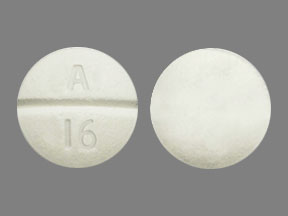
Bumex Coupons & Savings Card – Discount Prices from $26.53
Brand for: Bumetanide
My prescription
Edit
0.5MG, Bumetanide (90 Tablets)
Select pharmacy

CVS
$29.59
COUPON PRICE
Albertsons
$26.53
COUPON PRICE
Walmart
$29.13
COUPON PRICE
Walgreens
$30.06
COUPON PRICEBumex savings card
Show this card to your pharmacist
Albertsons
$26.53
BIN
ID
PCN
GRP
019876
LHAA68853F
CHIPPO
LHX
Powered by
Related loop diuretics prescriptions
More prescriptions for heart failure
Related loop diuretics prescriptions
More prescriptions for heart failure
Bumex (Bumetanide) dosage forms
Dosage Quantity Price from Per unit 0.5MG 90 Tablets $26.53 $0.29 0.5MG 1 Tablet $2.72 $2.72 0.5MG 50 Tablets $13.68 $0.27 0.5MG 100 Tablets $27.82 $0.28 0.5MG 500 Tablets $46.90 $0.09
| Dosage | Quantity | Price from | Per unit |
|---|---|---|---|
| 0.5MG | 90 Tablets | $26.53 | $0.29 |
| 0.5MG | 1 Tablet | $2.72 | $2.72 |
| 0.5MG | 50 Tablets | $13.68 | $0.27 |
| 0.5MG | 100 Tablets | $27.82 | $0.28 |
| 0.5MG | 500 Tablets | $46.90 | $0.09 |
What does the drug Bumex do?
Bumex, also known as bumetanide, is a loop diuretic medication. It helps the body get rid of excess fluid by increasing urine production. It is commonly used to treat fluid retention (edema) associated with conditions such as heart failure, liver disease, and kidney disorders.
Is Bumex hard on the kidneys?
Bumex (bumetanide) is a loop diuretic that can affect kidney function. It is generally used to help remove excess fluid from the body, which can be beneficial in conditions like heart failure or edema. However, it can potentially lead to electrolyte imbalances and dehydration, which may impact kidney function. It is important for individuals taking Bumex to have their kidney function monitored regularly by a healthcare provider to ensure it is safe and effective for their specific condition.
Why choose bumetanide over furosemide?
Bumetanide may be chosen over furosemide for its higher potency, as it is approximately 40 times more potent than furosemide. This means that a smaller dose of bumetanide can achieve a similar diuretic effect. Additionally, bumetanide has a more predictable absorption and bioavailability, which can be beneficial in certain clinical situations. However, the choice between the two should be based on the specific needs of the patient, their response to the medication, and the healthcare provider's clinical judgment.
Should I drink more water when taking Bumex?
When taking Bumex, which is a diuretic, it is important to maintain adequate hydration. However, the exact amount of water intake should be guided by a healthcare provider, as it can vary based on individual health conditions and the reason for taking the medication. It is essential to follow the healthcare provider's instructions regarding fluid intake to avoid dehydration or fluid overload.
Who should not take Bumex?
Bumex, or bumetanide, should not be taken by individuals who have an allergy to bumetanide or any of its components. It is also contraindicated in patients with severe electrolyte imbalances, anuria (inability to produce urine), or those with significant kidney or liver dysfunction without careful medical supervision. Pregnant or breastfeeding women should consult their healthcare provider before taking Bumex. Additionally, individuals taking certain medications that may interact with Bumex should discuss their use with a healthcare professional.
